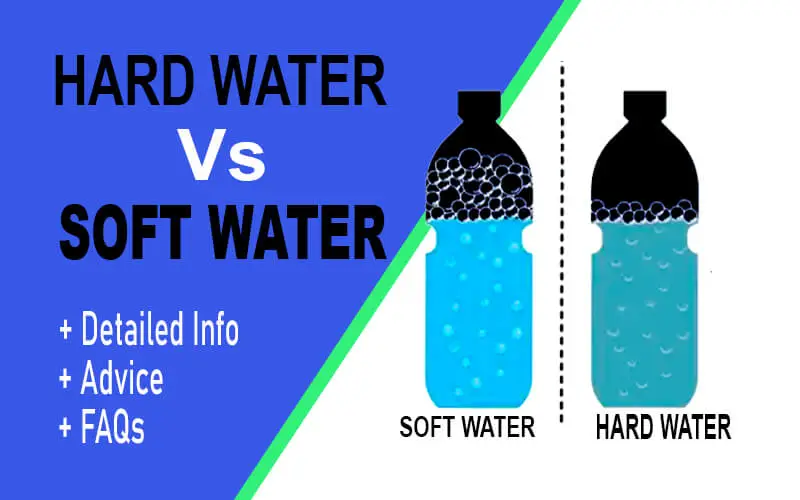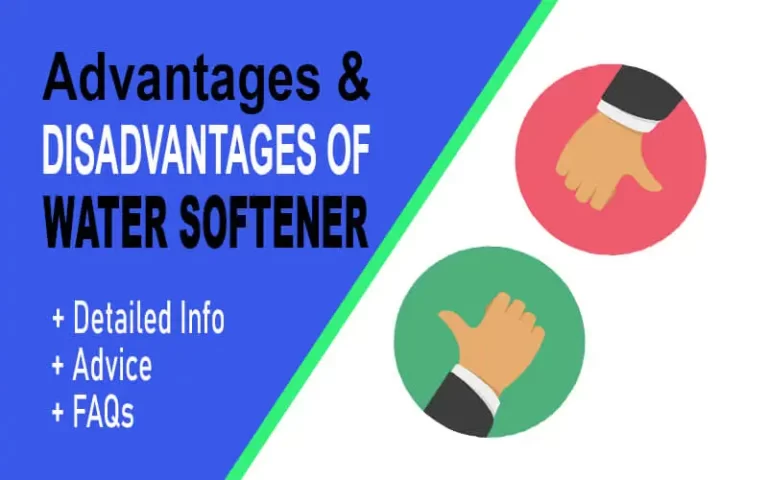Find Out Now! Hard Water Vs Soft Water [Differences] 2023
Is there any types of hardness of water? what is hard water vs soft water? Lets answer these questions in this article. Earth’s hydrosphere is dominated by transparent, tasteless, odorless, and nearly colorless water.
An existence without water wouldn’t be imaginable. Water is a fundamental component to support life. It is a key component in many biochemical reactions and helps to regulate body temperature.
Although the human body is mainly composed of water, it constantly loses water through respiration, sweating, and urination. Drinking water or electrolyte-containing fluids, such as sports drinks, is essential to replacing lost fluids. Dehydration can lead to serious health problems, so it is essential to stay properly hydrated, especially during hot weather or when engaging in physical activity.
Hard Water vs Soft Water
| Soft Water | Hard Water |
|---|---|
| Water which contain mineral content less than 17 parts per million is called soft water. | Water which contain mineral content more than 17 to 180 parts per million is called hard water. |
| Soft water contains less amount of calcium and magnesium than hard water. | Hard water contains high amount of calcium, magnesium, bicarbonates, chlorides, and sulfates. |
| Soft water produce more foam with detergents. | Hard water produce less foam with detergents. |
What is Hard Water?
The hardness of water is caused by calcium and magnesium salts, primarily bicarbonates, chlorides, and sulfates. Despite the fact that this might not seem like a big deal, it can actually have a significant impact on your life. You can learn all that you really want to be aware of hard water here
Minerals are profoundly moved in hard water, so it has a high mineral substance. This can make it difficult to dissolve soap and leave mineral deposits on your skin and hair. It can also cause buildup in your pipes and appliances, which can lead to decreased efficiency and increased wear and tear.
Fortunately hard water can be battled. In a water softener, the minerals in the water are traded for sodium particles. This helps to reduce the negative effects of hard water and makes it easier to dissolve soap and avoid mineral buildup. Descaler can remove the top hard layer of scales from top surface.
What is Soft Water?
Soft water comprised lower levels of calcium and magnesium than hard water. As a result of these minerals, soap won’t lather, dishes and tubs become filmy, and clothing fades. Soft water can also make it easier for plumbing pipes to become clogged.
While many people accept that hard water is better for their health, there is no logical proof to help this case. In fact, soft water may even be better for you since it contains fewer minerals that can build up in your body over time.
How to Test the Hardness of Water?
Water hardness measures the number of dissolved minerals in the water. A hard water source contains a high concentration of calcium and magnesium, whereas a soft water source has a low concentration.
There are a couple of ways of testing the hardness of the water.
One way is to add a few drops of pure liquid soap to a bottle filled one-third with water. Shake the mixture vigorously for a few seconds, and then observe the results. If the water becomes cloudy or if there are bubbles present, this indicates that the water is hard.
Another way to test for hardness is to use a home testing kit. Most hardware stores sell these kits or you can order them online. Follow the instructions included with the kit to collect a sample of your water and then compare the results to the chart included with the kit.
What are the Types of Water Hardness?
Hard water is one of the most common water problems in the United States. On account of water hardness, there are two sorts: temporary and permanent.
The dissolved minerals calcium and magnesium are responsible for temporary hardness. When water with dissolved minerals is heated, the minerals precipitate out of the water, making it hard. It is possible to remove this type of hardness by boiling the water or by using a water softener as water work perfect to fix this issue.
Minerals that are available in water cause long-lasting or permanent hardness. They can’t be taken out by bubbling or utilizing a water softener. These minerals, such as iron and manganese, make the water hard even after it has been boiled. Reverse osmosis and distillation can reduce permanent hardness.
Can Soft Water Cause Health Problems?
There is debate over whether soft water can cause health problems. How much sodium added to softened water addresses no health threats to most strong people.
However, some people believe that soft water can be harmful, especially for those who are already struggling with health issues. The jury is still out on this one, but it is something to be aware of if you are considering using soft water in your home.
While the amount of sodium in softened water is not a health concern for most people, there are some exceptions. People with high blood pressure or kidney disease should know that softened water may contain higher sodium levels and other minerals. They might have to restrict their admission of softened water to stay away from potential medical conditions.
Is it Ok to Drink Softened Water?
Indeed, it is. You may have heard that drinking softened water is not good for you, but this is not true. Softened water is entirely protected to drink and has many advantages.
Some people believe that softened water is not as healthy as hard water because it contains chemicals. Nonetheless, these synthetics are really added to hard water to make it protected to drink. Hard water frequently contains elevated degrees of calcium and magnesium, which can be hurtful to your health.
In general, there are no health gambles related to drinking softened water. Truly, it could attempt to be liked over hard water.
What are The Negative Effects of Hard Water?
The negative effects of hard water are many and varied and can be both significant and costly. Maybe hard water can prompt scale development on plumbing apparatuses and machines. This can prompt decreased proficiency and expanded mileage on these things and can likewise be unattractive.
In addition, hard water can cause dry skin and hair, as well as faded and stained clothing. Also, hard water can lead to frequent plumbing repairs and water bills.
Finally, hard water can leave unsightly dishware. In aggregate, the adverse consequences of hard water can be both critical and expensive.
What are The Benefits of Using Soft Water?
Water softeners offer a number of advantages for households and businesses that have hard water. They also simplify things in multiple dimensions of daily life and bring about desirable extra effects.
Here are some benefits of using soft water:
For one’s purposes, less cleanser and cleanser is expected to accomplish a similar degree of neatness. This is on the grounds that the minerals found in hard water can communicate with these cleaning specialists and render them less viable.Thus, soft water can set aside your cash over the long haul.
In addition, softer skin and hair are another common benefit of using soft water. This is on the grounds that the minerals found in hard water can strip away normal oils, leaving skin and hair feeling dry and weak.
At last, dishes and cutlery will likewise come out cleaner when washed in soft water. This is on the grounds that hard water can abandon spots and streaks that are challenging to eliminate.
Which One is Best, Hard Water and Soft Water?
There are perhaps a couple elements to consider while deciding if hard water or soft water is ideal.
One is the impact on your skin and hair. Soft water is less likely to cause dry skin or brittle hair, as it does not contain the minerals that can strip away natural oils.
One more component to consider is the impact on your pipes. Hard water can cause mineral development in lines and apparatuses, which can prompt obstructs and different issues. Soft water is less likely to cause these issues.
Finally, you may want to consider the taste of the water. Hard water can often have a metallic taste, while soft water is generally more palatable.
But according to science and research, soft water is best for your home use like cleaning and washing. Drinking soft water is also the best option.
Conclusion:
Hard water vs soft water each have their pros and cons. Ultimately, your best choice depends on your personal preferences and needs. If you have hard water, you may need to invest in a water softener to protect your pipes and appliances. If you have soft water, you may need to be careful not to use too much soap, as it can build up and cause problems. Whichever kind of water you have, make certain to remain informed about the most ideal ways to really focus on it.


![Diffuser vs Humidifier vs Vaporizer: [+Differences] 2023](https://prohouseideas.com/wp-content/uploads/2023/01/diffuser-vs-humidifier-vs-vaporizer-768x480.webp)
![Can a Solar Generator Power a Whole House? [+FAQs] 2023](https://prohouseideas.com/wp-content/uploads/2022/09/can-a-solar-generator-power-a-whole-house-768x480.webp)
![Find out Now! Unrevealed Benefits of Water Softeners [2023]](https://prohouseideas.com/wp-content/uploads/2022/12/benefits-of-water-softeners-768x480.webp)


